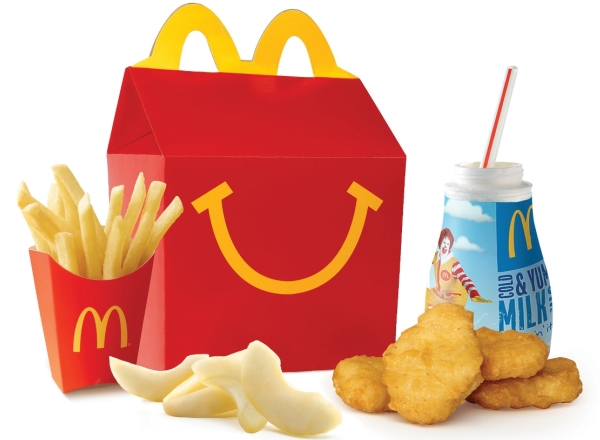The bull market is a couple of months shy of six years old, and the 2014 gain in the Dow Jones Industrial Average was 7.5%, while the S&P 500 Index was 11.4% higher. Those index performances do not account for individual stock dividends, but McDonald’s Corp. (NYSE: MCD) closed out the 2014 at $93.70, for a loss of 0.1%, including its dividend adjustments.
24/7 Wall St. has undertaken a bullish and bearish case to evaluate both sides of the coin to see what lies ahead for the Golden Arches in 2015. One key consideration for the year ahead is that McDonald’s remains in a very challenging business position. It has serious labor woes, as it finds itself in the middle of every wage fight effort to boost pay up to $15 per hour. Sales trends have been atrocious, and the company just cannot convince younger customers to come in and keep coming back.
The stock had a 2014 trading range of $87.62 to $103.78, and the consensus analyst price target of $95.99 would imply upside of 2.4% this year. Then there is the dividend yield of 3.6% to consider as well.
McDonald’s has a market cap near $91 billion. Unfortunately, its $27 billion (and then some) in expected sales for 2014 and 2015 are in decline. McDonald’s sales peaked at $28.1 billion in 2013. The company’s stock enjoyed a massive run higher from 2003 through 2011, but now it remains stuck in a very tight range of mostly $90 to $102. McDonald’s also recently was featured among our own worst-run companies in America.
ALSO READ: The Bullish and Bearish Case for Coca-Cola in 2015
Consumer behavior and preferences have not gone in favor of McDonald’s. The rise of the organic and natural foods trends has trumped the notion that a family can go eat a truly large meal at McDonald’s for very little money. Many consumers just no longer want a 740-calorie burger and a 520-calorie shake. Maybe the recovery has just allowed all of the McDonald’s fans to go eat elsewhere too. Whatever you want to blame the change on, the end of the argument stops with truly poor same-store sales trends.
What may be amazing is that McDonald’s shares have not fallen further. Despite being a dead stock and despite being under such a negative cloud, McDonald’s shares trade at about 18.5 times trailing earnings and about 17 times forward earnings expectations. Perhaps the lack of a discount to the broader stock market is because McDonald’s is a truly defensive stock. If times get tough again, you can feed an army for less than $20 there.
It seems hard to know what would drive McDonald’s shares higher in the near term. The trend just is not its friend. Still, McDonald’s was the best Dow stock not that long ago. The company is trying a new geared down menu with fewer value items and more healthy choices — will customers trust it? What if the company can get past the problems it has had with franchise workers?
What if activists go after McDonald’s with more vigor? Jana Partners has a small stake now, so what if they get more aggressive?
ALSO READ: The Bullish and Bearish Case for Wal-Mart in 2015
After a dividend-adjusted performance of -0.1% in 2014, the total return for McDonald’s, with the dividend included, is expected to be about 6.0%. While McDonald’s has trends still working against it, what if contrarian and activist investors turn out to be right? On top of that, McDonald’s still has room to keep raising its dividend for some time. In our bullish and bearish montage for 2014, McDonald’s analysts were calling for a gain of almost 6.7% for last year — not much seems to have changed in their calls since then.
Is Your Money Earning the Best Possible Rate? (Sponsor)
Let’s face it: If your money is just sitting in a checking account, you’re losing value every single day. With most checking accounts offering little to no interest, the cash you worked so hard to save is gradually being eroded by inflation.
However, by moving that money into a high-yield savings account, you can put your cash to work, growing steadily with little to no effort on your part. In just a few clicks, you can set up a high-yield savings account and start earning interest immediately.
There are plenty of reputable banks and online platforms that offer competitive rates, and many of them come with zero fees and no minimum balance requirements. Click here to see if you’re earning the best possible rate on your money!
Thank you for reading! Have some feedback for us?
Contact the 24/7 Wall St. editorial team.